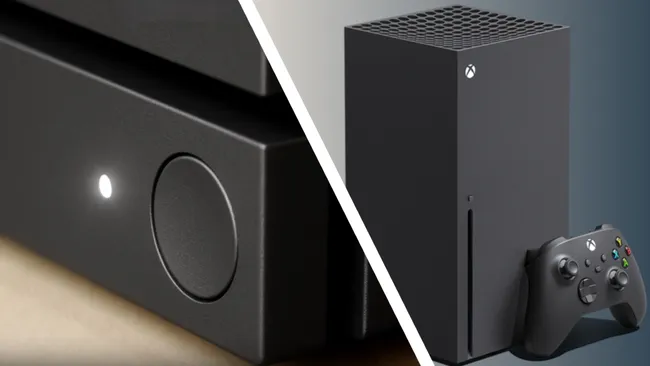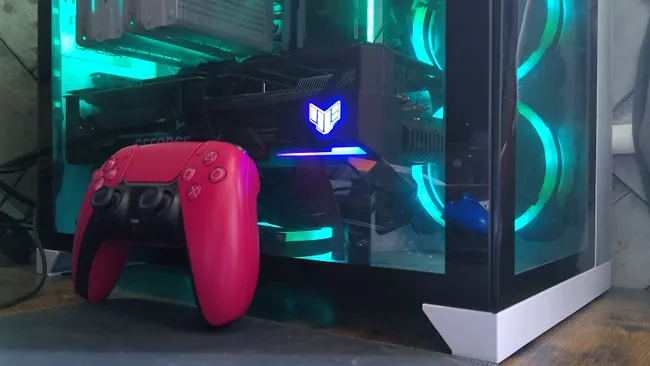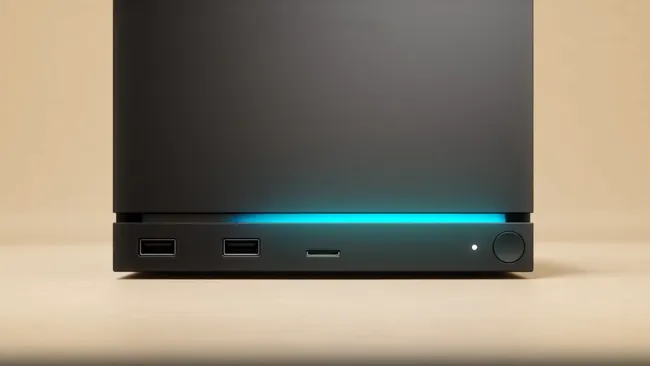After the Steam Deck OLED came out in 2023, they went completely quiet on new hardware, which made sense. So this new reveal came out of nowhere and has everyone talking. Now, this isn’t the “Steam Deck 2” we might have been waiting for. Instead, Valve’s coming in with a living room powerhouse that’s already starting to rattle the console world.
We still don’t know the final price or exactly how well it will run, but the message is clear: Valve is coming for Sony and Microsoft. If they can keep the same kind of killer value they did with the Steam Deck, and actually deliver on that 4K at 60fps promise, this thing could genuinely change the game for all of us. Sure, it’s fun to imagine Sony and Microsoft sweating, but let’s get to what really matters for us: What does the Steam Machine actually do for the PC gamer?
1. PC couch gaming is about to blossom

Let’s be honest, playing PC games from your couch isn’t a brand-new idea. I do it myself sometimes to unwind after a long day at the desk. But let’s face it, it’s a bit of a hassle. Not everyone has a super-long, expensive HDMI cable lying around to make it work.
And that’s the other problem: your average gaming PC is a hulking beast. It’s not exactly designed to fit neatly under your TV like a PlayStation or an Xbox. Sure, you can build a compact mini-PC, but that’s still a niche hobby for enthusiasts.
This is where the Steam Machine changes everything. It’s built from the ground up for the living room. Its chassis is so small and purpose-built for your TV setup that fans are already lovingly calling it the “Gabecube”, a perfect, and honestly adorable, nod to Nintendo’s classic GameCube. PC couch gaming will likely now become a normality for a wider range of PC gamers, whether that’s by buying a Steam Machine, or building a small form factor custom PC with SteamOS (likely Bazzite) installed.
2. Potential influx of console players

I can’t tell you how many times I’ve seen console gamers say, “I’d switch to PC, but…” That “but” is almost always about the intimidation factor. The fear of building a PC, understanding components, or dealing with driver updates.
The Steam Machine completely demolishes that barrier. It’s a pre-built, plug-and-play box. You don’t have to worry about picking a CPU or GPU because they’re permanently attached, just like in a console. The only things you might ever need to touch are the SSD and RAM, and swapping the SSD is as easy as it is in a modern PlayStation.
This is a game-changer. I truly believe we’re about to see a huge wave of console gamers finally make the jump to the PC ecosystem. And because it runs on SteamOS, it brings all of Steam’s best social features right into your living room. For someone like me, who’s always played solo on PC, features like Steam Families are going to make sharing games with friends and family incredibly easy. It suddenly makes PC gaming feel a lot less lonely.
3. Extra developer pressure for better PC ports and optimization

Here’s the thing: one of the biggest reasons PC players get lousy game ports is the sheer, overwhelming number of possible PC setups. It’s not an excuse for lazy developers, but it does explain why optimization is such a constant problem. The Steam Machine could be the key to fixing this.
Think about it like a console. If the Steam Machine becomes a mainstream, standardized device, it gives developers a single, fixed target to aim for. They’ll be under real pressure to make sure their games run flawlessly on this specific hardware before they launch.
And since the Steam Machine is essentially an entry-level PC, that polish won’t stop there. That same optimization will naturally benefit a huge range of other, similar PCs, leading to better-performing ports for everyone on the lower to mid-range spectrum.
This effect will only get stronger if the Steam Machine becomes a massive hit. And I’m fully expecting Valve to double down with a “Machine Verified” program, just like “Deck Verified,” to guarantee a smooth experience. It could finally force the industry to clean up its act on PC.
4. Third-party manufacturers create similar builds

Let’s be real about 2026. If people buy the Steam Machine and find it a bit underpowered, Valve has a brilliant backup plan: they’re basically inviting other companies to build better ones.
As our friends at PC Gamer pointed out, this could open the floodgates for brands like Framework, MSI, Lenovo, or Asus to create their own more powerful, third-party versions using SteamOS. Imagine a whole lineup of these mini console-PCs. Now, powerful mini-PCs already exist, but the game-changer would be if Valve officially expands SteamOS compatibility and starts licensing it. The Steam Machine is the perfect Trojan horse to make that happen.
For now, though, Valve’s focus is clear: deliver solid performance in today’s demanding games without the insane cost. They’re prioritizing a great value over cutting-edge specs and honestly, I’m totally on board with that.




